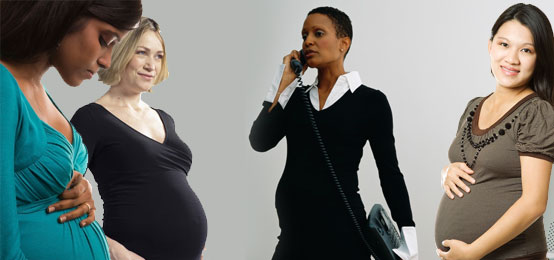JACQUIE HOOD MARTIN: The reality of CEO moms in the 21st Century
By Jacquie Hood Martin
www.jacquiehood.com
Determining what is the proper balance between your life at work and away from the office is a matter of perspective and perception. This issue has been widely discussed in the wake of Marissa Mayer being hired this week as the new CEO of Yahoo, and revealing that she is pregnant.
In a USA Today article about Mayer’s hiring and pregnancy announcement, a number of people were quoted condemning Mayer, saying she is misleading the public about working during her maternity leave.
Although some actually believe there is only one way a working mom should operate once she chooses to have and raise a child, they are wrong. In fact, there are multiple ways someone can achieve the proper balance based on their state of mind.
A mom who believes that she is to drop everything now that she has to care for a child views her role differently than the CEO mom who has to balance home and work. In either case the child will not be less loved. That child may also grow up being interdependent rather than co-dependent on a parent or guardian.
Children whose parents are home longer often find it difficult to integrate into nursery or preschool. A sense of abandonment and lack of understanding could be part of the child’s psyche. As a certified preschool teacher, I’ve often seen how both parent and child are nonresponsive to others.
Mayer’s critics may want to check out the results of a study by New York’s Columbia University School of Social Work, which determined that children will fare well in life regardless of the parents maternity leave decision.
The National Institute of Child Health and Human Development Study of Early Child Care, published in July by the Society for Research in Child Development, followed more than 1,000 children up to the age of seven from 10 geographic areas. The study tracked their development and family characteristics.
Yes, there were downsides to a mom working in the first year of the child’s life, but the added benefit of additional incomes causes researchers to determine that the decision to continue working even all sides out.
Mayer’s decision to continue to work sheds light on what other moms who do not have maternity leave face each day. Maternity leave used to be a right and a privilege afforded to working Americans with insurance. Many new mothers would welcome the opportunity to stay in the hospital longer than the day of birth; be able to reside in their homes for a year; and even have the option of never returning to the workforce.
This is not the reality of the thousands of moms giving birth right now.
There has been a lot of debate in many cultures and communities about the wisdom of working through maternity leave and when is the right time to return to work.
I contend that women who stay home or who are disengaged from adult conversation and activity are often withdrawn due to a lack of social engagement. This begins the rapid decline of communication in the home and the onset stages of post-partum depression. In my coaching practice I advise against women doing the cold turkey self-removal from all things familiar, especially if this is your first child. It can be hard to overcome going from being in control and in charge to being helpless home with a new child.
Working mothers and fathers must create a balance that does not happen at the expense of the family as a unit. We must be careful not to paint a picture that 99 percent of the women who have babies are staying home on maternity leave. Women run the risk of unemployment or taking a lesser paying position when they return. It is no wonder why women in business and executive levels often forego having a child. In fact, the Sunday Times-London reports, “that a business executive hired another woman to carry her fourth child because she did not want to jeopardize her career”.
Although surrogacy is a luxury and most often used by women with infertility, it still speaks to how women feel about being ostracized in the public space about becoming a mom.
Women in high-profile careers have enough stress with the pregnancy itself, and determining when to leave the child with a caregiver, when to or not to return to work, and how the child will feel simply places undue – and unfair – pressure on them.
Instead of criticism, Mayer should be applauded for her decision. It’s her career and her child, and the 37-year-old mom-to-be has a right to make her own decisions and what’s best for her child. It’s laughable that outsiders would trust Mayer to make decisions for a company with 12,500 employees and a market cap of $19 billion, but can’t trust her to make her own decision about her career and her child.
Jacquie Hood Martin is a Balanced Living Coach and author of Fulfilled! The Art & Joy of Balanced Living; and Wedded Bliss! A 52-Week Devotional to Balanced Living; She is corporate trainer facilitating work life balance workshops, trainings, and retreats.


